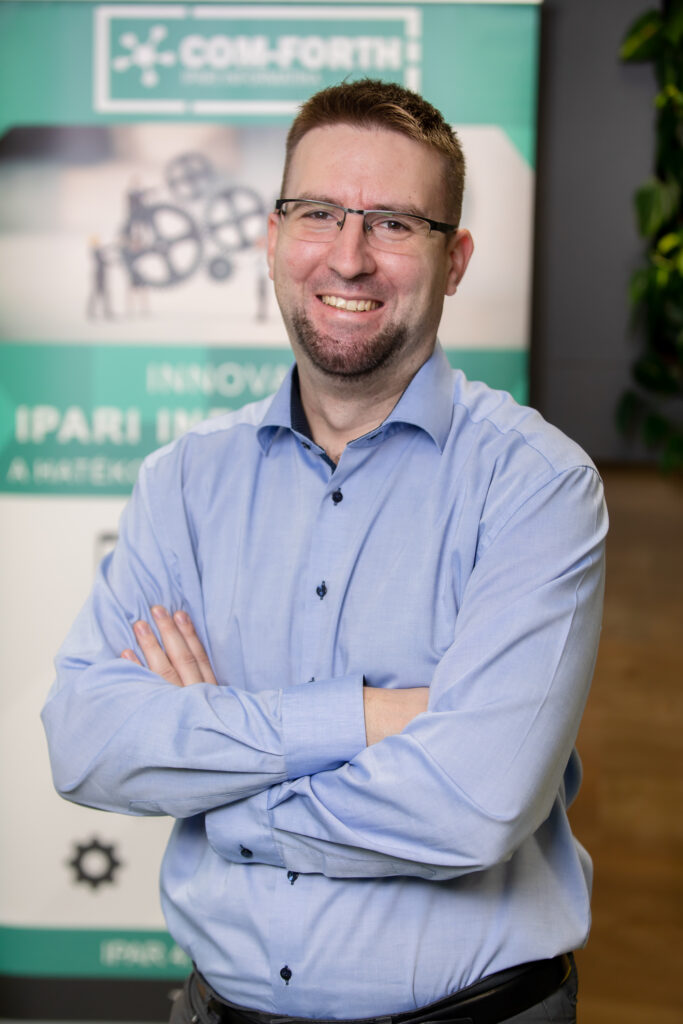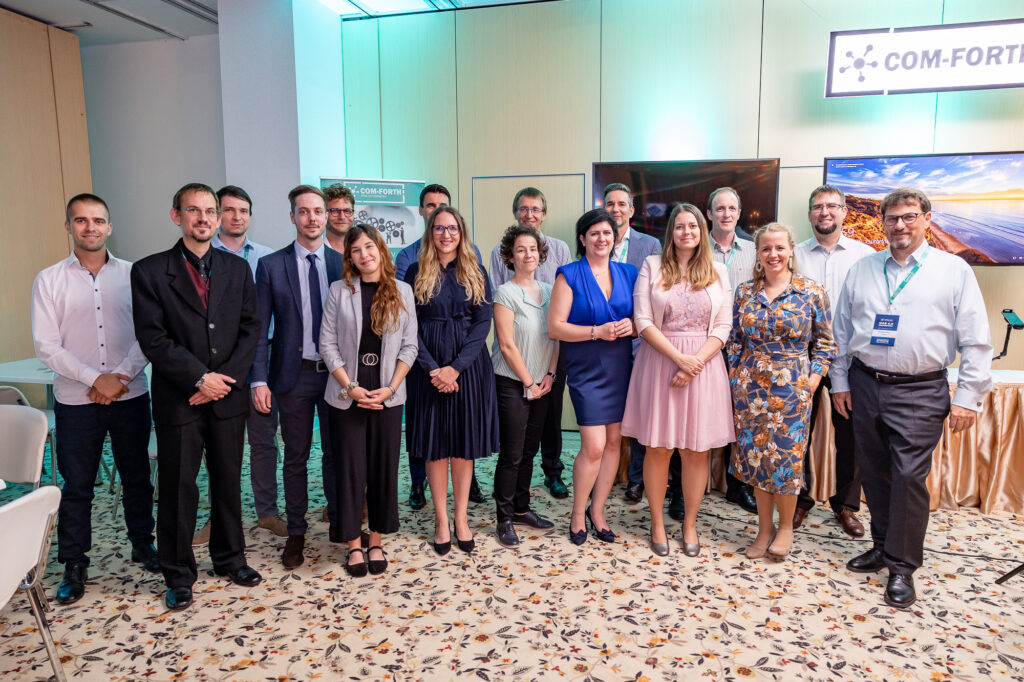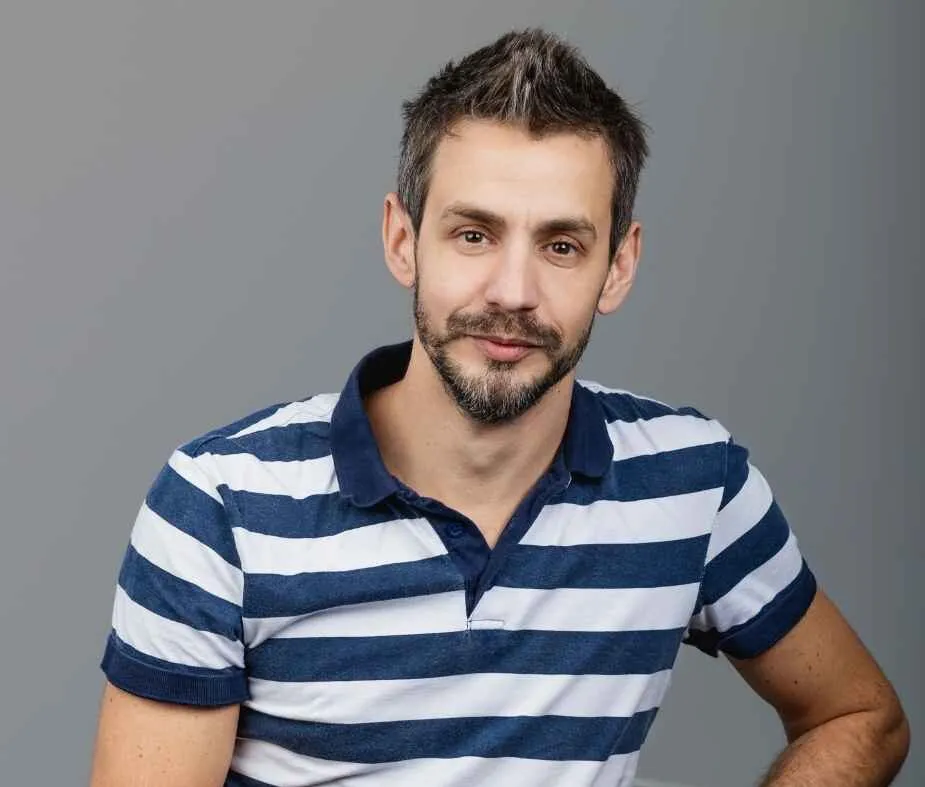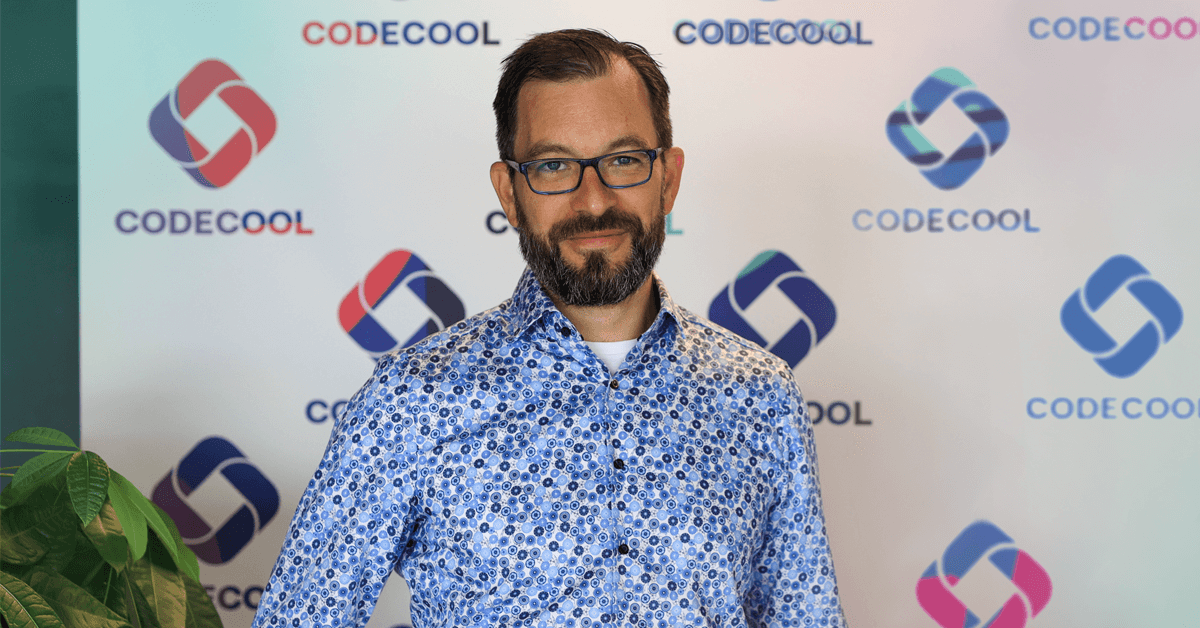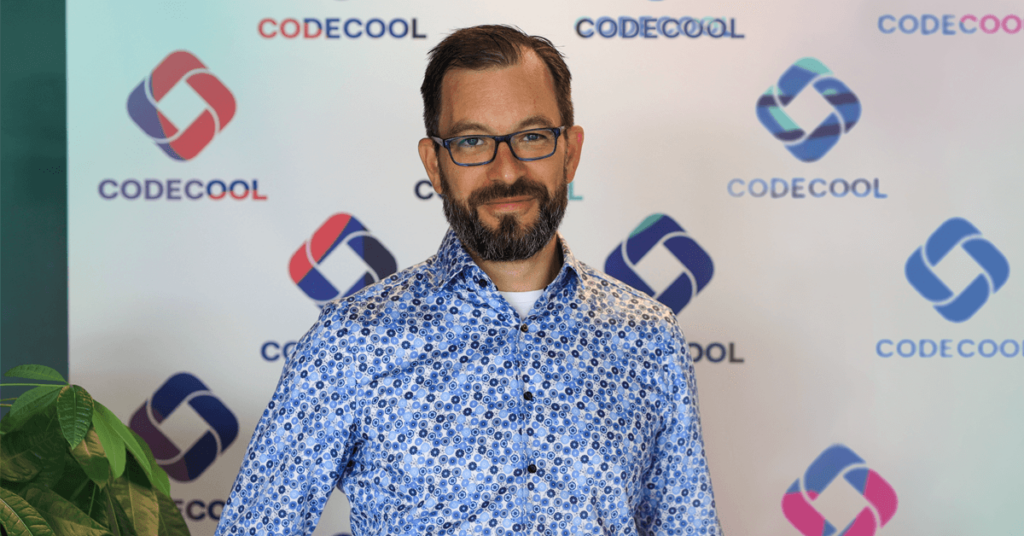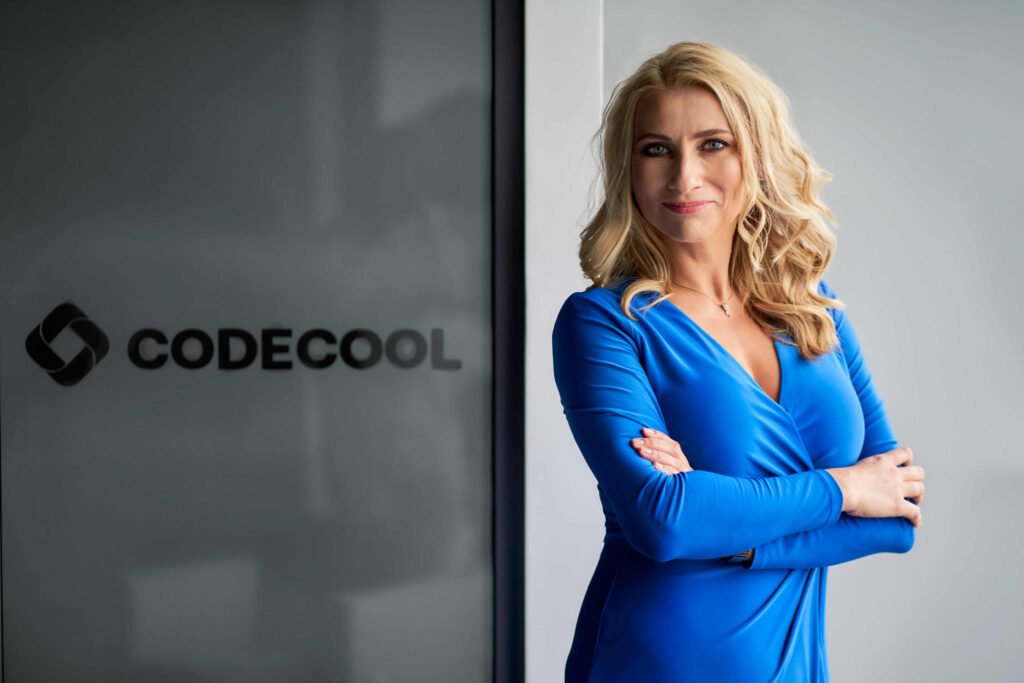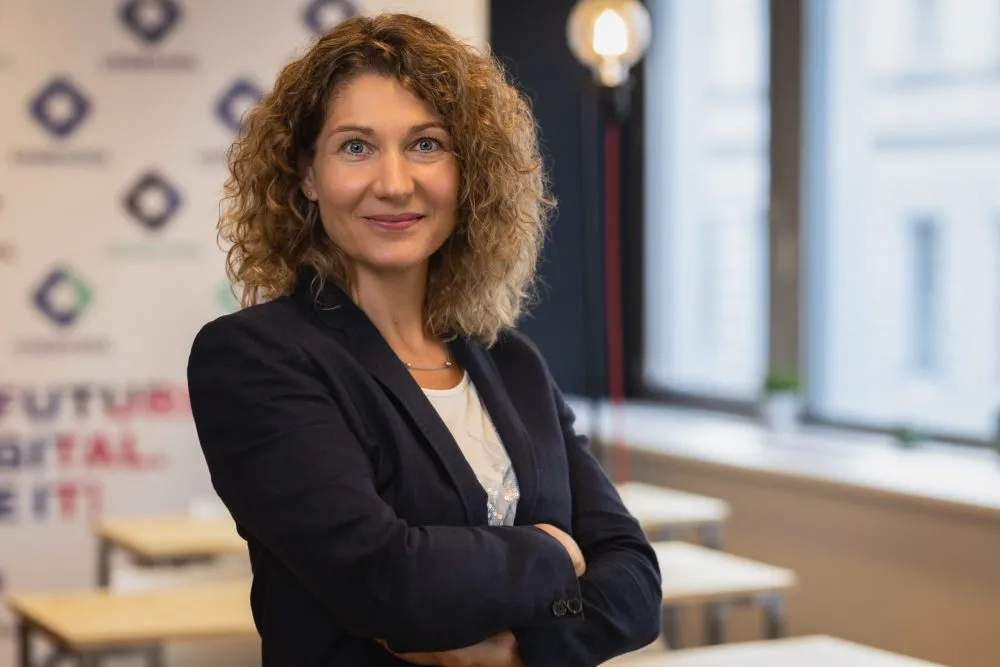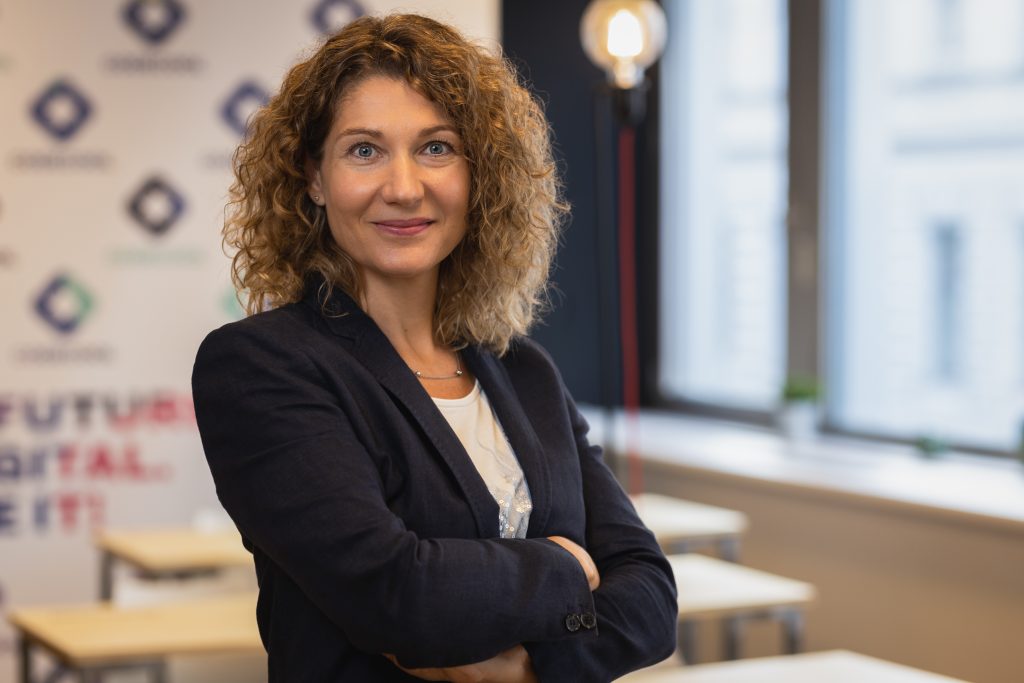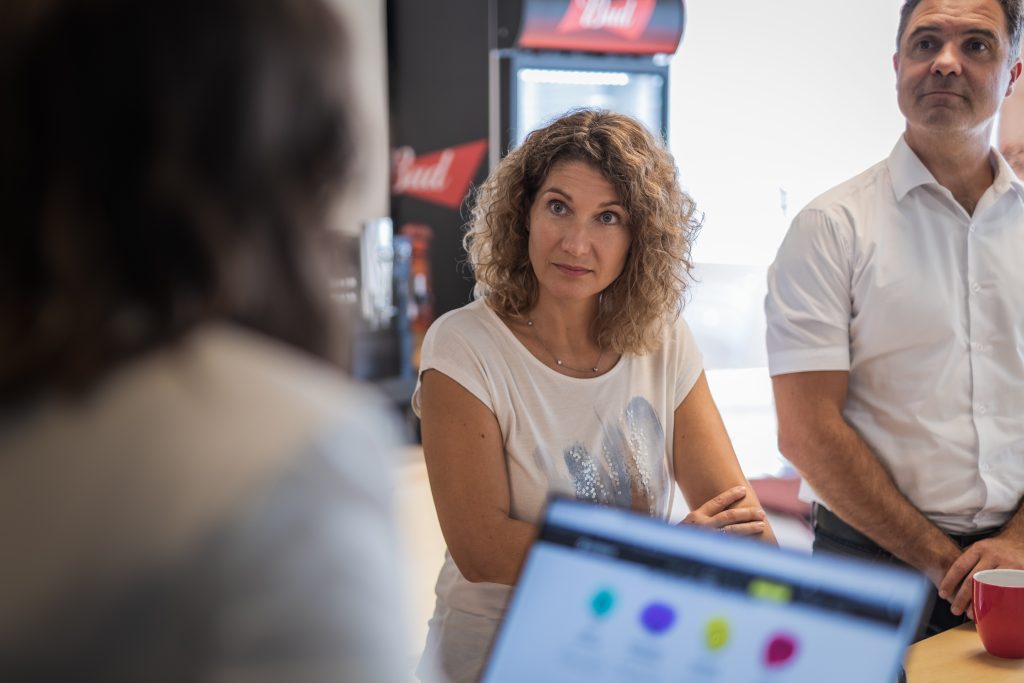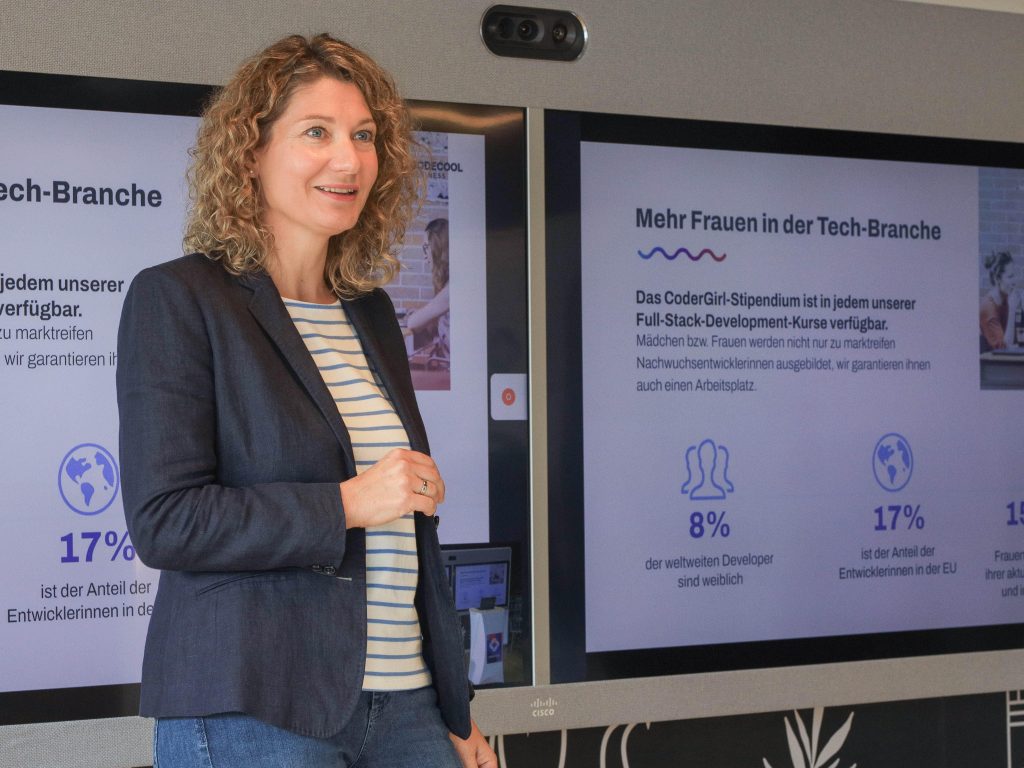In this blog post series, we’re sitting down for a chat with people making the Codecool vision happen. Meet Claudia Tamași (Niculiță), Country Manager of Codecool Romania.

If you want to meet inspiring people, Codecool is a great place to be. Every day we meet hundreds of smart, ambitious students and innovative leaders of our partner companies who want a build a better digital future.
But it’s not only our students and partners that inspire us. We also work with equally impressive colleagues who bring the Codecool vision to life.
We had a chat with one of these colleagues about her current goals, challenges, and outlook on the future. We’re proud to introduce Claudia Tamași (Niculiță), Country Manager of Codecool Romania.
Claudia, how would you introduce yourself if you weren’t allowed to mention your work?
I’m curious, passionate about self-discovery, and love going out in nature. I’m a wife, a daughter, and a sister. My family and friends are vital to me, and I intend to develop as many meaningful relationships as possible. Therefore I don’t go in for “small talk.” 🙂
I can’t live without feeling that I’m evolving and contributing to where I belong, without feeling that good things are happening as time passes. I’m very interested in psychology, understanding how people think and feel, and how I can support their growth and evolution.
What does it mean to be a Country Manager? What does your role involve?
I am directly responsible for Codecool’s overall activity in Romania: I coordinate all the operations, including both the educational part, the recruitment of candidates as well as the placement of students in companies, and the development of partnerships.
I strive to convey the Codecool story to our fellow Romanians. We have an incredible story and mission. I think it’s my and my team’s responsibility to show the world how cool the environment and the vibe are and what transformative things you can learn here. We put a lot of emphasis on programming and technical knowledge, but not only that. We equally focus on a growth mindset, a new beginning in a digital environment, soft skills, collaboration, teamwork, and helping those who are behind growing with others.
I am motivated by results because they give me the energy to move forward. But I am also very interested in how we achieve those results. Ethical principles and values give meaning to life, and often it is the “how” that matters more than the “how much.”
What’s your background?
I studied economics, followed by psychology. I started working in service and product sales during my university years; I have over 15 years of experience in the telecommunication industry at companies such as Vodafone and Orange.
I’ve worked for companies with dedicated Business-to-Business services for the last ten years. I was a national sales director at Adecco and a commercial director at TMF Group; I also delivered coaching and leadership programs to various teams.
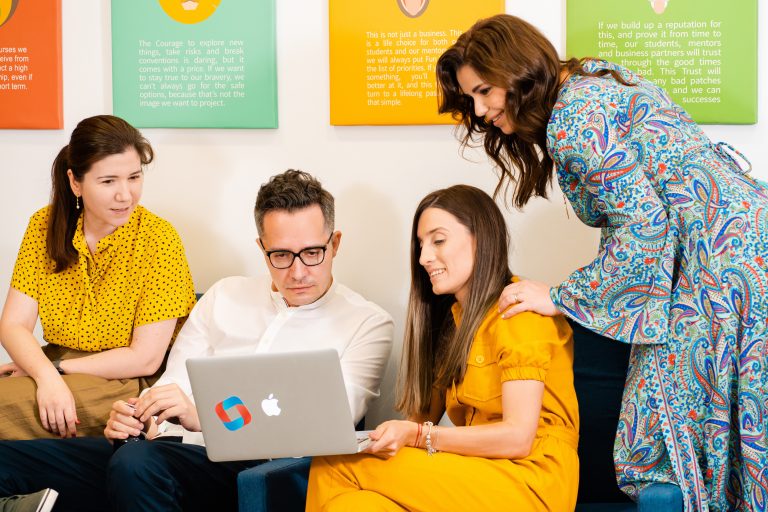
Why did you decide to join Codecool? What do you like most about the company?
In 2016 I decided to take a break and enjoy a sabbatical year. Although I enjoyed what I did before, in 2016, I felt a strong need to rethink my career and make more meaning out of what I did. I wanted the eight hours I invest in the professional environment every day to contribute to society and be meaningful.
That year I did a lot of volunteering. I attended a coaching and nutrition course – that’s how I understood to take a break and recalibrate. 🙂 It was clear that I needed to go in a different direction. Previously, all my experience had been in large corporations, where you work in a framework full of rules and procedures. I felt I needed more freedom and a context where I could put my ideas into practice. I wanted to be able to make a meaningful contribution to the project I was managing.
While I was thinking about which direction to go, Codecool came to me. I was very enthusiastic because I found it fascinating how the good of all combines in this project. The candidate wins because we change his life, and they can have a career in IT. Our partners win because they get junior full-stack developers who are very well prepared for their business.
And in the end, after investing 12-18 months into training students, we also win the Codecool team and investors. It’s a win-win for all parties, which makes me very content. In addition, it fairly respects a principle that firmly guided me in life: I choose to give before asking for anything.
What is your most ambitious goal at Codecool?
There are two: one that involves Codecool and one that goes beyond Codecool. The latter has to do with Romania, which has great potential to become one of Europe’s most robust IT hubs. We seem to have the right size, the right talent, and a sufficient number of IT people in the country. There are also many talented people abroad who would probably return if given the motivation to return. But we need a well-thought-out political and socio-economic strategy.
Regarding Codecool, my dream is that it becomes a game-changer both in Romania and across Europe. I would like to see Codecool becoming the strongest school in Europe, being the first choice when a person wants to do reskilling, upskilling, or simply wants to switch careers and join the IT industry.
What do you see as your biggest challenge currently?
The biggest local challenge at this moment is the educational model offered by Codecool. No school in Romania provides the following two benefits: postponing payment until you find a job and guaranteeing you a job by contract at the end of the study period.
We are the first private school in Romania to offer these benefits, so there’s reluctance among potential candidates. Many tell us that it’s too good to be true and are convinced there’s something rotten in the middle. But there’s nothing rotten; instead, the opportunity comes with a lot of hard work and sweat from the students because there’s no way to become a full-stack developer overnight.
The intensity of the courses and the schedule of 6-8 hours a day from Monday to Friday can lead to frustration and dissatisfaction. Unfortunately, we are used to traditional education, where we go to school, sit at desks and listen to teachers for a few hours. Whereas in Codecool, 90% of learning is done through practice. We want to offer learners an experience similar to an environment in a software production company: we work in an Agile way, we work in teams, we share the tasks, we have daily standups, peer coding, code review, and so on. And this is how our graduates integrate very quickly into IT companies at the end of the process. But let’s not forget that satisfaction requires a lot of effort from the students and us.
What are some important trends you see in the world that impact your work at Codecool?
It seems to me that all the global challenges we are all facing – starting with the pandemic and continuing with the war in Ukraine – inevitably put us in a zone of insecurity, political instability, and fear. In this context, people choose stability and security. They no longer have the courage to embrace new opportunities, change careers dramatically, put their lives on hold for a year and study IT.
At the same time, we cannot overlook the fact that the pandemic has also increased the development speed of the IT sector. Many processes that used to happen face-to-face have had to move online. Therefore, the need for digitization has become very strong in all industries. In these 2-3 years, we have evolved as much as we would have in 10 years under different conditions.
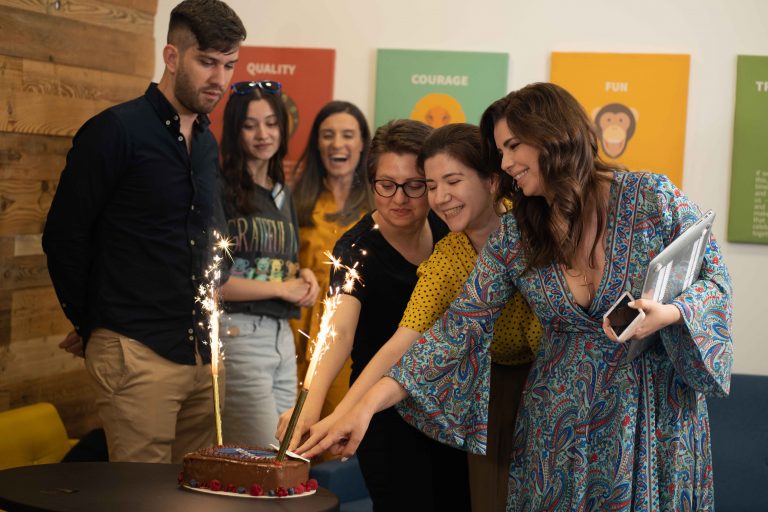
Where do you think Codecool is going in the short and long term?
The future looks great!
On 13 September 2022, Codecool merged with Software Development Academy (SDA) and became one of the strongest European training and talent integration centers in the IT&C market.
The two merged companies will be present in 8 countries (Poland, Hungary, Romania, Austria, Slovakia, Czech Republic, Estonia, and Albania) and will train 15,000-20,000 people annually. In addition, we have over 400 global and local partner companies in Central and Eastern Europe. With more than 300 workers, 17 digital pathways, and a network of 1,600 mentors, Codecool and SDA provide skilling, upskilling and reskilling courses for individuals, companies, and governments.
Our goal is to become the first choice in Europe and implicitly in Romania when it comes to digital education, both for individuals who want to improve their technical skills or want to reskill and for business partners and government institutions.
Why do you think hiring companies should partner up with Codecool?
Because we are a reliable partner. We’re very fast, flexible and good at what we do. If a company comes to us, they receive a list of CVs within 48 hours from which they can choose their candidates – full-stack junior developers. In addition, they can test them for six months before hiring them permanently. Together with the CVs, they also receive a list of technical projects from the Codecoolers, thus saving time in the technical recruitment process. And after hiring, the Codecoolers stay with them for at least 12 months.
Moreover, at Codecool, we focus on both technical and soft skills training: Codecoolers are trained to give and receive constant feedback, to work in a team, to ask for help when needed, to present their projects in English, and to develop a growth mindset.
Another advantage Codecool has is that we always have a number (10-15) of candidates available, and we have known our trainees for over 12 months. We don’t interact with the candidate for just a few hours – as is the recruitment agency model. We are very focused on the matching part with business partners: we have colleagues who do the recruiting, listen to the business representative, understand the need and the structure of the team and manage to recommend a person both in terms of technical knowledge, personality, and soft skills.
One last question: How do you see our shared digital future?
I find the digital world fascinating. Remarkable progress has been made, and I believe that digitization and artificial intelligence will dramatically and very quickly change how we see the world. Jobs in 20-30 years will look nothing like they do today.
It’s fabulous what we can build and how we can help create a new world through digitization. A better, more connected and educated, cleaner, more informed and responsible, more empowered world. All I wish and hope is that those who lead this transformation do it responsibly and for the greater good of all.









